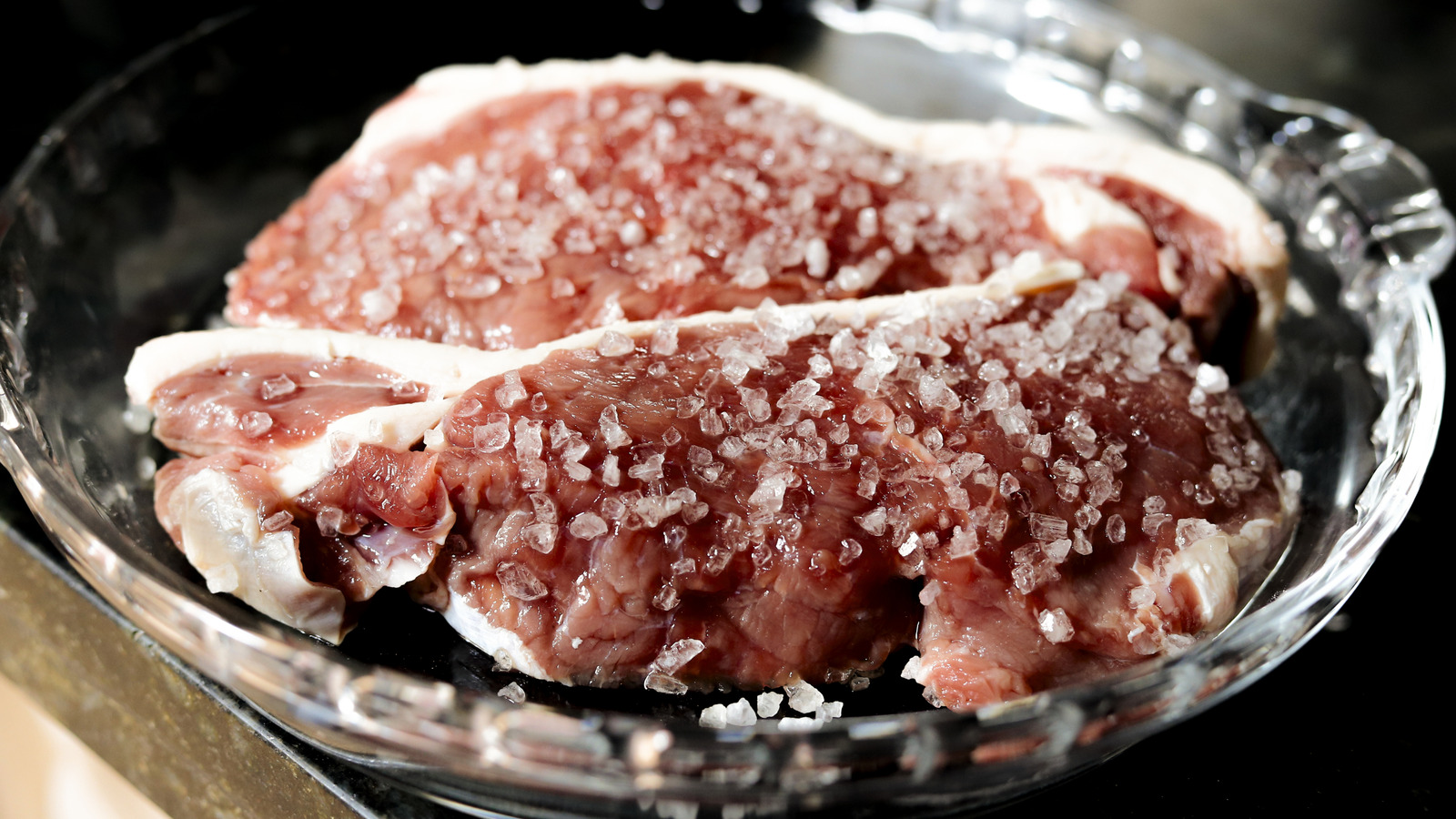
"At its core, the process simply entails adding salt to meat, or other foods, before you cook them. It's a practice that dates back thousands of years, when it was primarily used to preserve food. Over time, people came to realize it also has huge benefits even when cooking fresh meat. The biggest one is that it helps to prevent you from overcooking your meal."
"When you heat up beef, chicken, pork, or any other meat, the muscle fibers contract, which squeezes out moisture. This is why a burger you put on the grill ends up smaller after being cooked. And losing all that liquid is why well-done meats become tough and leathery. Brining helps meat retain moisture, even during cooking. This is partly due to the fact that salt attracts water, which in turn gets absorbed by the food."
"This is because cells naturally want to balance the amount of sodium in them, so the more exposed cells on the outside will transfer salt to their neighbors on the cut of meat's interior until the process achieves a better distribution. This has the benefit of evenly seasoning the meat, too, but as this process carries out the salt also has the effect of breaking down and dissolving muscle proteins."
Brining uses salt, applied as wet brine or dry rub, to improve meat texture and juiciness. Salt diffuses into meat by osmosis, drawing and holding water in muscle tissues to reduce moisture loss during cooking. Salt migration also seasons meat more evenly throughout the cut. Salt exposure partially dissolves and breaks down muscle proteins, which tenderizes the meat and increases tolerance to higher cooking temperatures. Brined meats therefore retain more moisture, develop greater juiciness and tenderness, and provide a larger margin for error against overcooking than unbrined meats.
Read at Tasting Table
Unable to calculate read time
Collection
[
|
...
]